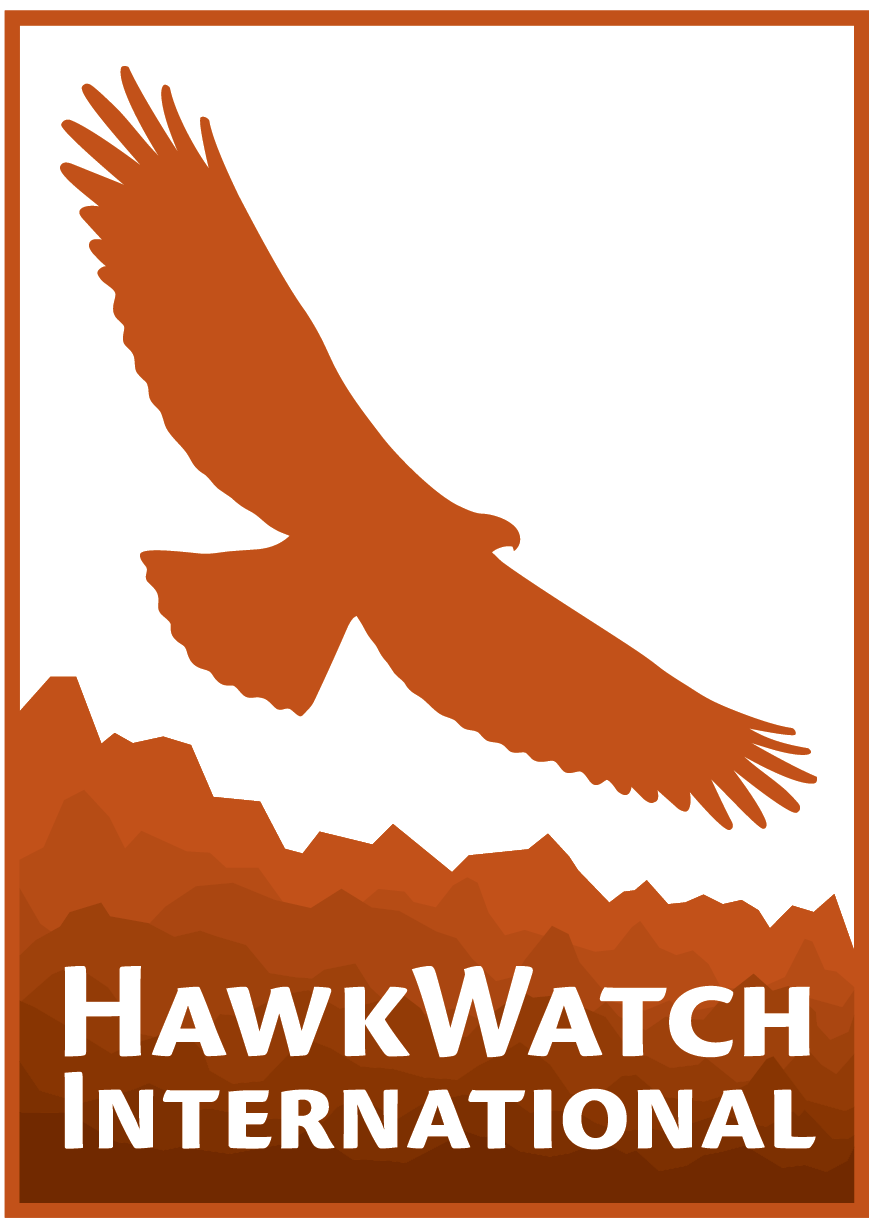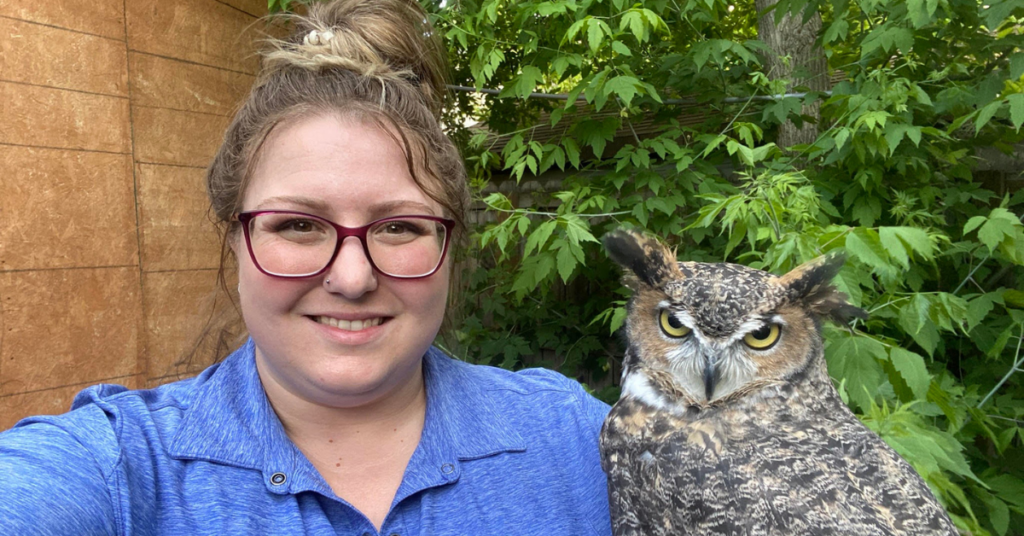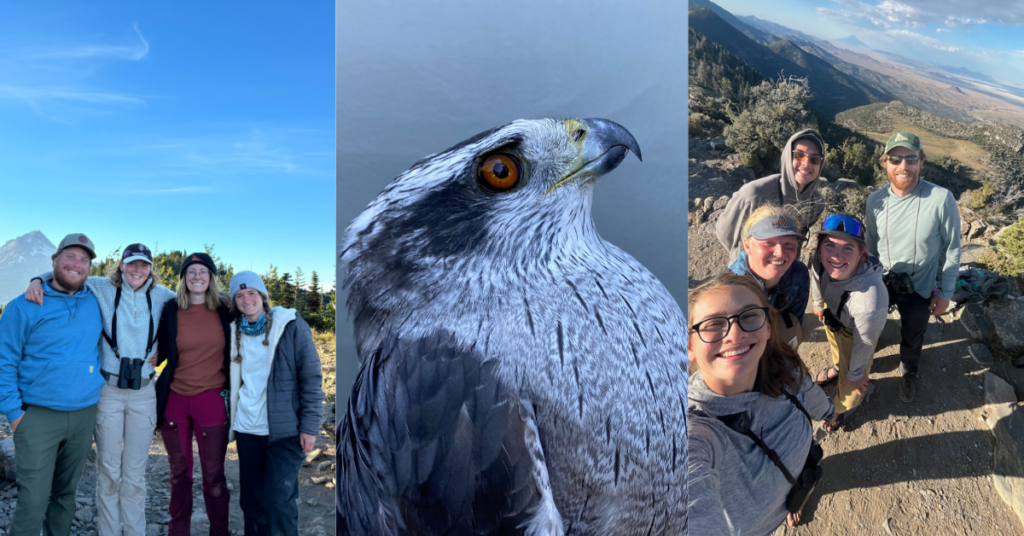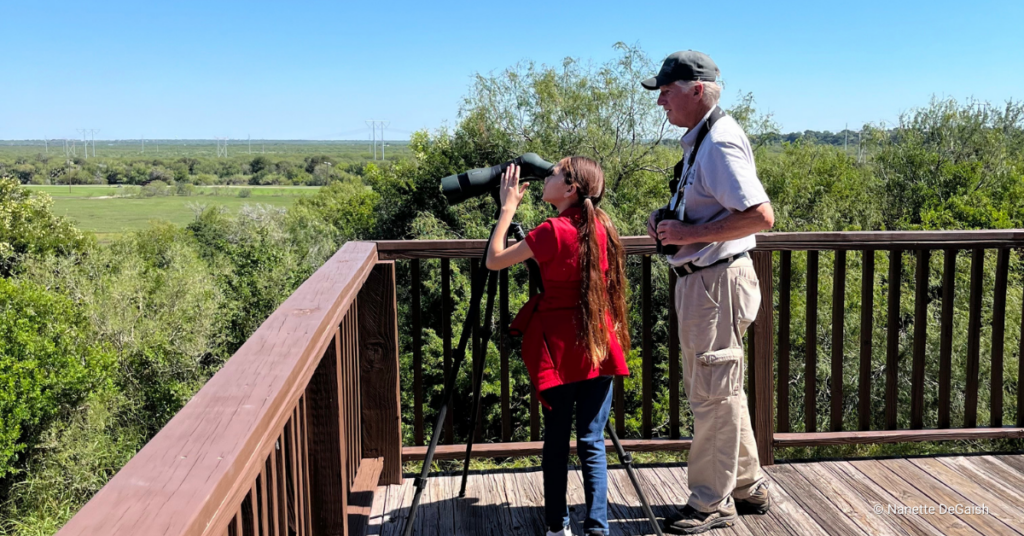“What a cool job!”
“Are you a volunteer- this isn’t an actual job, right?”
“How do I get a fun job like yours?”
It seems that every time I’m out at a program with one of our Ambassador Birds on my arm, I hear variations of these comments from our learners. And to be honest – I get it. Many people don’t know that informal education is even a career option, much less how to pursue such a career. For me this is a dream job, combining my passion for working with animals with my passion for educating people about the natural world. Along with two other educators, our education director, and an amazing group of volunteers, I help deliver hundreds of science programs every year at schools, community events, and more.
But how DOES someone become an informal science educator? I’ve discussed this question and others with my fellow educators at HawkWatch International, and it turns out there is not just one, single answer. I hope that learning about how our diverse paths have converged on the same job in science education will provide some useful insight to anyone who might be interested in pursuing a similar career.
1. Have a childhood passion for science… or not
While I spent my childhood tromping through the woods and looking for critters under logs and rocks, I can’t say I ever considered anything related to science as a future profession, at least at that time. Renata dreamed of being an astronaut when she was younger, while Melissa aspired to a career in acting. Suffice it to say that none of our childhood ambitions involved “science education.”
2. Show a high aptitude for science classes from an early age… or a complete aversion to it
Melissa grew up with a father who was a scientist and often joined him in the field. This provided her with valuable real-world context for what she learned in her science classes in school. On the flip side, Chris didn’t particularly like science when he was younger, especially since science often involves the ever-dreaded field of mathematics.
3. Go to college… anywhere
Where is the best place to go to college to prepare for a career in science education? According to the educational background of our education staff, the answer is pretty much anywhere. Collectively, we have attended school all across the United States, from Maryland to Montana, Arizona to Minnesota. Melissa even attended college right here in HawkWatch International’s home base of Utah.
4. Excel in your studies…or just try your best
College coursework can be tough. I have struggled with a few learning differences, and it took me almost 9 years to finish my Bachelor’s degree. Chris switched majors several times and reminds us that it’s okay to change your mind.
5. Get a degree… in something
Renata and I both have a Bachelor of Science. Hers is in Environmental Science, while mine is in Biology. Chris comes from the other side of the science educator spectrum with degrees in Secondary Education and History. Perhaps the most unexpected is Melissa’s Bachelor of Arts in English, with an emphasis on technical writing. All of us have found relevance between courses we’ve taken and the duties of our current jobs as science educators.
6. Connect with folks along the way… they might prove to be unexpected sources of support
Renata remembers one of her professors who was especially excited and enthusiastic about their river ecology class. She was one of only a few women professors Renata had, which made her especially inspiring and relatable. Melissa and I each have memories of folks along the way who encouraged our love of nature writing.
7. Find a great job in your field right away… or work various jobs and sometimes feel a little lost in the meantime.
We have all worked various other jobs prior to this one. Our team’s previous jobs include: customer service, boot maker, librarian, and intramural sports referee. Eventually, our resumes showed progress toward science education, with jobs such as park ranger, zoo educator, and field technician. Several of us spent years in volunteer positions, internships, and seasonal positions before landing a full-time job in this field.
8. Finally land that dream job… and remember that dreams are allowed to change
A job as a science educator isn’t for everyone. But, for those of us with a passion for conservation work and an interest in sharing knowledge, it can be a wonderful experience. Just remember that there are many ways that you can support conservation and science, even without choosing to make a career out of it.
For anyone who is genuinely considering a career in informal science education or thinks it’s something they might be interested in, there are plenty of soft skills you can foster to help set yourself up for success, no matter your current path. Public speaking is perhaps one of the most important skills to try to develop; a well-delivered and thoughtful program makes a much bigger impression on audiences. Interpersonal communication skills are also extremely valuable. Some of the best moments and biggest impacts happen when we are talking with a learner one-on-one, and understanding how to communicate and connect with others can really strengthen that moment. Finally, a willingness to learn can be a huge asset in any informal science education position. Much of my knowledge of raptors and their conservation was learned on the job, so I know firsthand how important it is to come in with an open mind and an eagerness to take in new information.
Regardless of the path you find yourself on, if you’re open to developing some of the above skills along the way, you too may find yourself fielding questions like, “how do I get a fun job like yours?”
This blog was written by Laura Cleveland, one of HWI’s Educators. You can learn more about Laura here.



